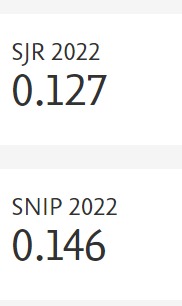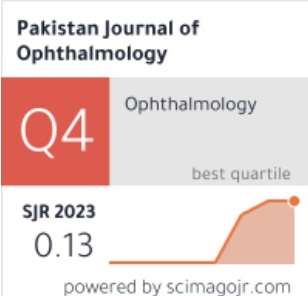Angiogenesis and Role of Anti-VEGF Therapy
DOI:
https://doi.org/10.36351/pjo.v25i3.635Abstract
Vascular endothelial growth factor (VEGF) is the main culprit to initiate the cascade of angiogenesis in a variety of chorioretinal neovascular disorders such as neovascular age-related macular degeneration (ARMD) and various proliferative retinopathies. Although VEGF has an important role in maintaining the adequate blood flow to retinal pigment epithelium (RPE) and choriocapillaries, however its over-expression in response to hypoxia causes the growth of new vessels, These new vessels are fragile causing leakage and bleeding with promotion of scar tissue formation resulting in the visual loss. Currently there are three anti-VEGF agents available in the market, namely pegaptanib (Macugen), ranibizumab (Lucentis) and bevacizumab (Avastin). In this article we look at all these drugs available with review of international literature to determine their usefulness.






